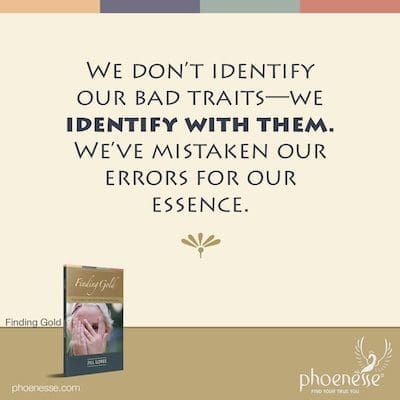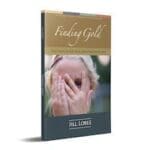Have you ever noticed in yourself feelings of uncertainty, fear, insecurity, guilt, weakness, doubt, negativity, inadequacy or inferiority? Brilliant. You’re in the right place. Let’s look at how these correspond to the same degree we have self-esteem, or the inevitable lack thereof. This is going to give us a key for tackling our problems more directly.

We may need to have done some work already to have a direct awareness in ourselves of “I do not like and respect myself.” Right away, we get kicked in the teeth again by a duality, which creates a split. In one corner, weighing in with a heavy dose of half-truth, is: How can I like and accept myself without falling into self-indulgence and justifying all my destructive traits, even those I work so hard to cover up?
In the opposite corner, ready to put on a good show, is: How can I admit to all my petty, destructive ways, my cruelties and vanities that make me vindictive and unloving, and maintain any shred of self-respect? How can I be honest and get away with not feeling guilt, self-rejection and self-contempt? Discuss.
This is a conundrum indeed that pits admittance of an unpleasant truth against self-acceptance. They seem mutually exclusive. Perfect opposites. We’ll get to the key for unifying this split in a moment. First, let’s explore the conflict a little more.
Some of us may already have uncovered this raging battle within ourselves. We get what this is about. Others may not have come upon it just yet. In that case, perhaps a way to sense our inner under-evaluation is to notice our shyness, our insecurity, our apprehension about rejection or criticism. Maybe there are some feelings of uncertainty, inferiority and inadequacy we can resonate with too. Perhaps we feel a little guilt that makes no sense. It might be that we aren’t open to this idea of untold bliss, that we make do with much less than we could experience. Or possibly we stand back in life, feeling vaguely undeserving. If these things show up in any areas of life, they are pointing to self-rejection, self-dislike and lack of self-esteem.
Bottom line, if this is going on, we don’t think much of ourselves. We may or may not think in specifics. It is quite possible to have self-disdain without being able to put our finger on exactly what we don’t like in ourselves.
Once we get a handle on a vague lack of esteem and appreciation for ourselves, we are ready to get more clear. If we really want to find specifics, we will. It’s just that the recognitions may slide in from stage left, which isn’t where we expected them to come from. It’s like that on a spiritual path.
Or maybe we’re getting some clarity about some truly regrettable inner attribute. This sometimes puts us into the truly regrettable attitude of being defiant and self-justified. Now that we’ve admitted it, we must reject ourselves for it, right? We don’t parse the difference between rejecting a trait and rejecting a person. So what do we do? Deny, falsify, rationalize—heck, we’ll even gussy the thing up and pretend we think it’s pretty. Oh, the many ways we can beautify a very undesirable trait. And we wonder why we are confused.
So let’s get that key. How can we squarely confront our undesirable parts without losing our sense of value, our self-worth, our self-esteem? For starters, we’ve got to start seeing things a new way. Our life—and we are life, because we’re alive—represents all life, all nature. And one of the earmarks of life is that it changes. It expands.
Even the lowliest of life forms, the most destructive people, can change for the better. At the drop of a hat, it could happen. If change doesn’t happen right away, that alters nothing. Because one day, things are sure to change. One’s true nature will eventually emerge. And this knowledge, well, that changes everything.
This insight changes despair about ourselves. It opens doors, knowing our potential for good is in there, no matter how malicious we may be in the moment. We are in fact generous, no matter how mean we are now. And we are loving, even if we’re selfish today. We are amazingly strong, despite the ways we appear weak and get tempted to betray our best selves. We’re great, regardless how petty we seem right now.
Just take a look at nature. It’s constantly changing, forever dying and then being reborn. It’s expanding and contracting and pulsating, always moving, always branching out. This is particularly true for life that is conscious. And it’s way more true for a life that is self-conscious.
The power of our thoughts, will and emotions trumps any inanimate power. But just look at what power is held in electricity or in atomic energy—constructive and destructive both. Because wherever life exists, both possibilities are present.
In the smallest atom, which we could never perceive with our naked eyes, lies the power to release an insane amount of energy. Yet how infinitely more is this the case with the power of the mind—the power of thinking, feeling and willing. But here we go, assuming the power of inanimate things outpaces our power. Dwelling on this fact can open new vistas for us.
We underrate the powers of humanity by an incredible long shot. We deserve more respect than can possibly be put into words. This is true, even if what’s showing up today is highly undesirable and destructive. The life that is issuing forth still holds all the potential to turn into constructive channels. Remember, the source of life is truly inexhaustible.

Hope. The changing nature of life is what justifies it. No matter how hopeless a situation or state of mind appears, there is realistic reason to hope it will change. To be in deep depression and hopelessness is then to be in error. One then negates the very essence of life.
Когда мы находимся в плохом месте с очень низкой самооценкой, мы склонны объединять ошибку ощущения неприемлемости, разрушительности или негативности с мыслью, что все исправленои так будет всегда.Но на самом деле жизнь текучая. Мы живы, следовательно, мы текучие. Но из-за нашего незнания этой истины мы заключаем себя в жесткие ограждения, в ловушку в ящике, в котором, как мы думаем, должны оставаться навсегда. И мы действительно можем находиться в собственной тюрьме очень долго.
Поэтому нам нужно спросить: где я чувствую себя безнадежным? Зачем? Потому что я считаю, что возможности жизни слишком ограничены? Потому что я не заслуживаю более значимого жизненного опыта? Последнее часто тлеет под нашими ограничивающими жизнь убеждениями.
Итак, мы продолжаем: неужели я безнадежно заслуживаю большего, потому что мне, возможно, справедливо, не нравятся определенные качества во мне? Теперь посмотрим, как мы можем полагать, что эти черты определяют нас. Здравствуйте. Мы пришли к ошибочному мнению, что самое неприятное в нас - это мы сами. Но в то же время это то, чего мы не хотим менять.
Потому что в глубине души мы не верим, что можем быть кем-то другим, кроме того, что нам не нравится. Итак, мы держимся за эти вещи. В противном случае мы бы перестали существовать. Блин. В этом суть дела. Вот почему мы держимся за деструктивные черты. И если мы увидим, что делаем это, мы можем отчаяться еще больше. Мы ничего не можем с этим поделать. Мы не понимаем, что побуждает нас почти сознательно держаться за то, что мы ненавидим в себе.
Хорошо, вот и ответ на вопрос, почему мы это делаем. Мы держимся, потому что искренне верим в то, кто мы есть. Мы не определяем плохие качества - мы определяем их. И мы думаем, что находимся в фиксированном состоянии, поэтому изменение невозможно. Мы забыли, что в нас есть все возможности. По самой своей природе мы уже являемся тем, что, по нашему мнению, потребует огромного труда. Мы ошибочно приняли наши ошибки за суть.
Это ловушка. Самоуважение может появиться только тогда, когда мы сможем почувствовать нашу способность любить и отдавать. Но мы не можем этого почувствовать, если будем считать само собой разумеющимся, что такой способности не существует - если мы считаем, что зафиксированы в том состоянии, которое сейчас выражаем. Тогда наше настоящее любящее «я» кажется нам чуждым.
So what’s the off ramp for this vicious circle? Knowing this: no matter how messed up our life is, and no matter how frozen it appears to be trapped in a struggle, this is one tiny part of the whole story. The fluidity of life is like a winter stream under a mountain of snow. It’s constant in its spontaneity and movement, and it’s remarkable in the way it is forever self-renewing. And things could shift at any moment.
When we don’t know this, we don’t give ourselves, or others, the respect we fundamentally deserve. As long as we confuse vibrant, ever-changing life with inanimate matter, we will despair. If we wake up from this, it’s like discovering the life inherent in even an inanimate, seemingly dead atom. Boom.
So nothing—absolutely nothing—that exists in the universe is lifeless. Now add consciousness. Notice how even our thinking is in constant movement. Unless, of course, we let it ruminate around in habitual negativity, self-rejection and unnecessary limitations.
But what if we decide to use our thinking in a new way. Perhaps we can then experience the truth of life’s hopeful changeability, its possibility to move forward in amazing and mysterious ways. We can change our personality by allowing ourselves to expand our thinking, take in new perspectives, consider new directions. Before we know it, these new ways of thinking will pry off the lid on those old attitudes we now dislike so much.
Using the word “new” is a bit of a misnomer here. There is not really anything new happening other than our asking for new awareness and being shown it. Plant the right seeds and with the right care, they will grow. What’s new here is that we perceive ourselves as being fertile soil, before we plant the seed. Great potential abounds in fertile soil, whether or not the seeds are dropped in. Our entire consciousness is outrageously fertile soil.
Whatever situation we find ourselves in, we always have choices. Old situations can be met with new reactions. Or new situations can still be met with old habitual reflexes. If we’re not paying attention to what we’re doing, we’ll fall right over that edge. When we cry and moan about every little thing that happens, we’re in it deep. But we can turn all that crap into fertilizer for great growth. It’s our choice.
Most of us aren’t aware of this battle going on inside. It has secretly made us fear our instinctual drives and impoverished our souls. We can never thrive in such a climate of self-rejection. And religious commands to love aren’t going to move the meter as long as this dualistic split keeps humming along. Only through unification—by finding and healing this split—will self-liking no longer be confused with self-indulgence. Then honest self-confrontation won’t bring us to our knees with self-loathing, but instead bolster our self-esteem. The pathway to peace is by truly accepting the ugliest in ourselves without losing sight of our intrinsic beauty.
Вернуться В поисках золота Содержание:


